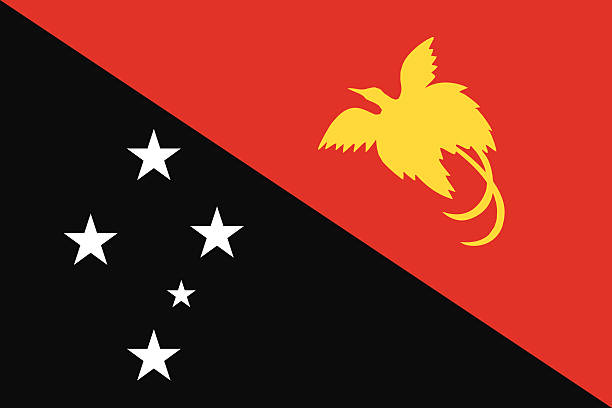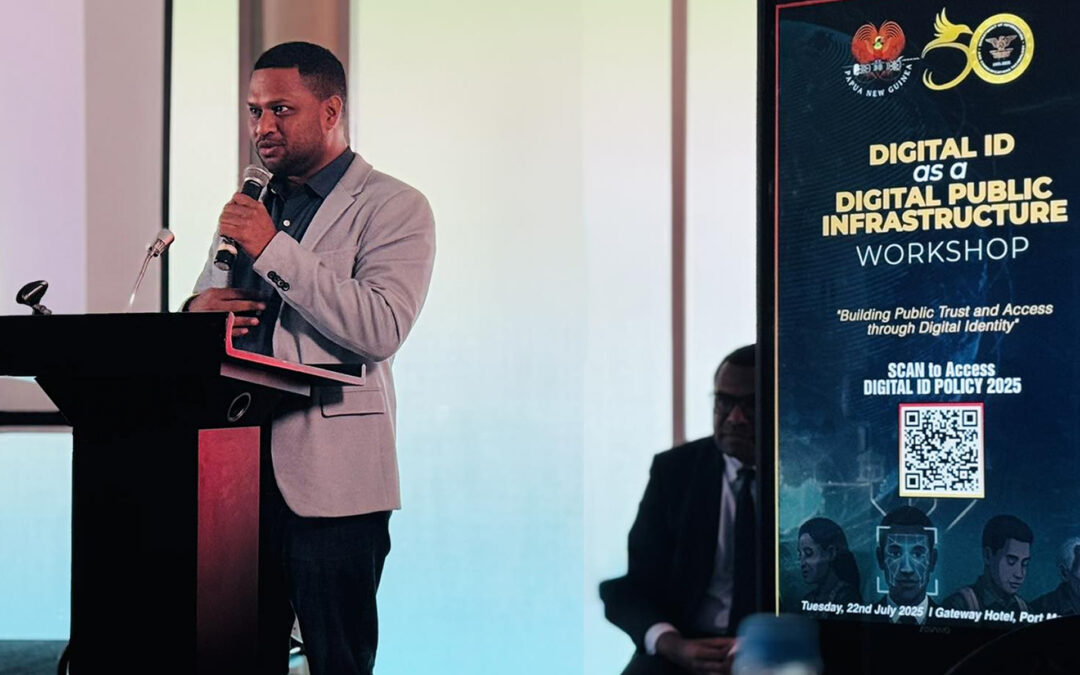Port Moresby, 22 July 2025
Secretary for the Department of Information and Communications Technology Mr Steven Matainaho, during the Digital ID Policy Implementation workshop emphasized the strategic importance of Digital ID in PNG’s digital transformation journey and it’s positive impact in Digital economy as a Digital Public Infrastructure (DPI).
The workshop hosted at Gateway Hotel Port Moresby on Tuesday 22nd July, brought together key stakeholders from the financial sector, telecommunications, and government data custodians to explore the implementation of Digital ID as a foundational element of the country’s DPI.
“We are targeting three sectors in this workshop—Financial, Telcos, and Government—because they represent the highest transactional use cases,” Secretary Matainaho said.
“Digital ID is the first interaction point with citizens or customers, so we need to get that right.”
Mr Matainaho outlined the department’s journey since 2019, when it was formerly called the Office of Information and Communication, giving and overview of the policy achievements.
“We set a series of enabling policies to get the Government ‘Haus’ in order with the establishment of the Cyber Security Policy 2021, the Government Cloud Policy, and the Data Governance Policy. Over 150 government agencies are now onboarded to the cloud, with standardized websites and Microsoft 365 deployment underway.
Secretary said the DPI is like a public road—built by government but accessible to all.
“We’re trying to build an ecosystem where everyone can plug in and use it for their specific eKYC requirements,” he said.
The proposed DPI framework includes three core components: Digital ID, a universal wallet (SevisWallet), and an interoperability platform for secure data exchange.
Matainaho emphasized on the urgency of cross-sectoral collaboration, stating that it is vital for the efficient implementation of the Digital ID system.
“If all organizations in the three sectors help us sign their customers onto the Digital ID, we can reach our target of onboarding over 80% of citizens above 18 within a year.”
The policy outlines a federated governance model: DICT as the policy sponsor, NICTA as the regulatory authority, and Kumul Consolidated Holdings as the implementing body.
International partners including the World Bank, Asian Development Bank, and the Australian Government have supported the initiative.
“The ADB has come on board to help us validate this based on best practice,” Matainaho noted.
“We have the policy and the technology specifications. What we need now is to understand and validate the use cases. If we can get this working for everyone, innovation and commercial interest will thrive—and we can grow our sectors, and the digital economy of PNG.”


